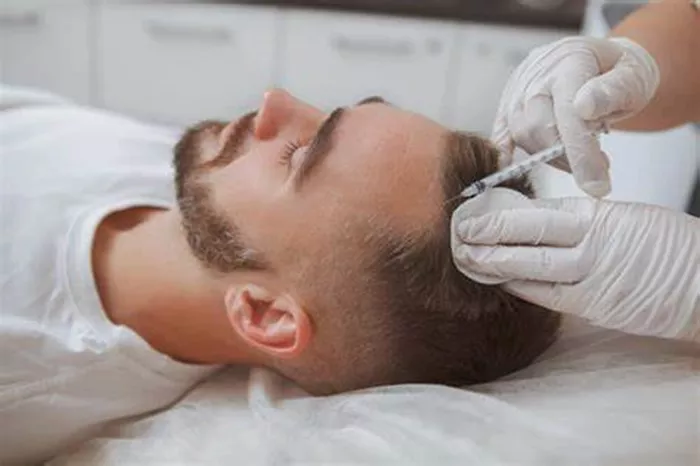Hair transplant surgery is a significant step for many individuals seeking to restore their hairline and regain confidence. Post-operative care is crucial to ensure the best results, and dietary choices, including the consumption of coffee, play a vital role in the healing process. This article will delve into the effects of coffee on post-hair transplant recovery, offering a comprehensive guide for patients to understand the implications of their caffeine habits.
The Importance of Post-Operative Care
After undergoing a hair transplant, the scalp needs to heal properly to secure the newly transplanted hair follicles. Post-operative care is essential to minimize the risk of complications and to promote optimal hair growth. This involves following your surgeon’s guidelines closely, which often include recommendations on diet, medications, and lifestyle changes.
Understanding Hair Transplant Surgery
Hair transplant surgery involves extracting hair follicles from a donor area (usually the back of the head) and implanting them into the balding or thinning areas. There are two main techniques:
Follicular Unit Transplantation (FUT):
This method involves removing a strip of skin from the donor area, from which hair follicles are extracted and transplanted.
Follicular Unit Extraction (FUE):
In this method, individual hair follicles are extracted directly from the donor area and transplanted.
Both methods require precise handling of the hair follicles and meticulous post-operative care to ensure their survival and growth.
The Role of Caffeine in the Body
Caffeine, the primary component in coffee, is a stimulant that affects the central nervous system. It is widely consumed for its ability to increase alertness and reduce fatigue. However, caffeine also has physiological effects that can impact healing after surgery.
See also: Can You Still Lose Hair After Hair Transplant
Effects of Caffeine on Healing and Recovery
Blood Flow and Blood Pressure: Caffeine causes vasoconstriction, which means it narrows the blood vessels. This can increase blood pressure and potentially affect blood flow to the scalp, which is crucial for the survival of newly transplanted hair follicles.
Dehydration:
Caffeine is a diuretic, which means it can lead to increased urine production and potentially cause dehydration. Proper hydration is essential for healing, as it helps transport nutrients and oxygen to the surgical site.
Stress and Anxiety:
Caffeine can exacerbate feelings of stress and anxiety. High levels of stress can negatively affect the healing process and overall well-being.
Immediate Post-Operative Period
In the immediate post-operative period, usually the first 48 to 72 hours, it is crucial to avoid anything that could disrupt the healing process. Most surgeons recommend avoiding coffee during this time for several reasons:
Reducing the Risk of Increased Blood Pressure:
As previously mentioned, caffeine can elevate blood pressure, which could lead to increased bleeding or complications at the surgical site.
Preventing Dehydration:
Staying well-hydrated is critical for recovery. Avoiding diuretics like coffee helps maintain proper hydration levels.
Minimizing Stress:
The body is already under stress from the surgery, and adding caffeine to the mix can heighten this stress, potentially slowing down the healing process.
Gradual Reintroduction of Coffee
After the initial post-operative period, patients can start to gradually reintroduce coffee into their diet. However, this should be done cautiously and in moderation. Here are some guidelines for doing so:
Wait at Least 72 Hours: To ensure the initial healing phase is not disrupted, it is advisable to wait at least 72 hours before considering reintroducing coffee.
Start with Small Amounts: Begin with small quantities of coffee to see how your body reacts. If you notice any adverse effects, such as increased heart rate or anxiety, it may be best to avoid caffeine a bit longer.
Stay Hydrated: Ensure that you are drinking plenty of water to counteract the dehydrating effects of caffeine.
Monitor Blood Pressure: If you have a history of high blood pressure or are concerned about the effects of caffeine on your blood pressure, monitor it closely. If you notice significant changes, consult your doctor.
Long-Term Considerations
Even after the initial healing period, it is essential to maintain a balanced approach to coffee consumption. Here are some long-term considerations:
Moderation is Key: Consuming coffee in moderation is unlikely to have significant negative effects on hair transplant results. However, excessive consumption can lead to chronic dehydration and increased stress levels.
Balanced Diet: Ensure that your diet supports overall health and healing. Incorporate plenty of fruits, vegetables, lean proteins, and whole grains to provide the nutrients needed for hair growth and recovery.
Regular Check-Ups: Follow up with your hair transplant surgeon as recommended. They can monitor your progress and provide personalized advice on lifestyle and dietary choices.
Alternatives to Coffee
If you are looking to reduce your caffeine intake or avoid coffee altogether, consider these alternatives:
Herbal Teas: Herbal teas are naturally caffeine-free and can provide a soothing alternative to coffee. They also offer various health benefits depending on the herbs used.
Decaffeinated Coffee: If you enjoy the taste of coffee but want to avoid caffeine, decaffeinated coffee is a good option. It contains minimal amounts of caffeine, reducing the risk of adverse effects on healing.
Green Tea: Green tea contains less caffeine than coffee and also provides antioxidants that can support overall health.
Conclusion
In conclusion, it is generally advisable to avoid coffee in the immediate post-operative period following a hair transplant to prevent potential complications such as increased blood pressure, dehydration, and heightened stress. After the initial healing phase, coffee can be gradually reintroduced in moderation. Long-term, maintaining a balanced diet and moderate caffeine intake can support the overall success of your hair transplant.
Always follow your surgeon’s specific guidelines and consult with them if you have any concerns or questions about your post-operative care, including dietary choices. By taking these steps, you can ensure that you give your newly transplanted hair the best possible environment to grow and thrive.
You May Be Interested In

